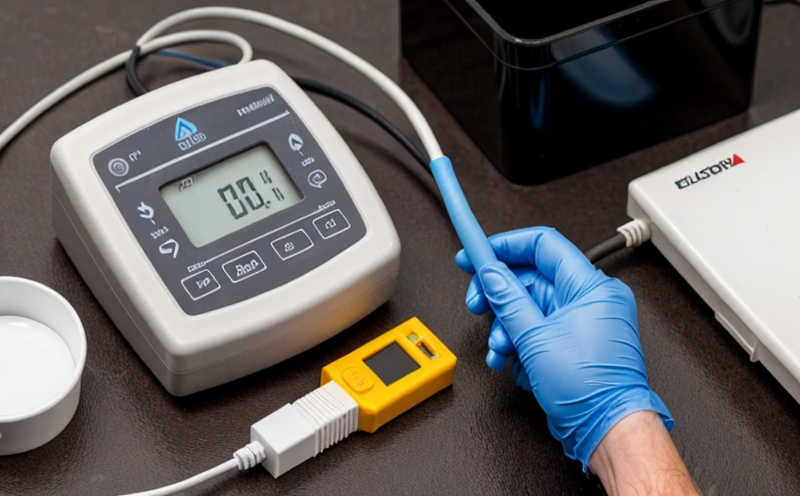DIN EN 12495 Electrochemical Testing of Corrosion in Marine Areas
The European Standard DIN EN 12495 specifies electrochemical techniques used to assess corrosion in marine environments. This standard is particularly relevant for quality managers, compliance officers, R&D engineers, and procurement professionals involved with materials that are exposed to saltwater or other aggressive marine conditions.
Electrochemical testing provides a comprehensive approach to understanding the behavior of various materials under corrosive conditions. The standard encompasses a range of techniques including potentiodynamic polarization tests, galvanic couple studies, and linear polarization resistance (LPR) measurements. These methods help in evaluating not only the susceptibility of materials but also their protective coatings.
The testing process typically starts with the selection of appropriate specimens based on the material type and expected marine exposure conditions. Specimens are then carefully prepared to ensure accurate test results. This involves cleaning, conditioning, and sometimes coating them as per the standard's requirements. Once prepared, these samples undergo electrochemical analysis using specialized equipment such as potentiostats and coulometers.
The primary focus of DIN EN 12495 is on the potential difference between two different metals in a galvanic couple or the polarization resistance of an individual metal immersed in a marine environment. This helps determine the cathodic protection requirements for structures like offshore platforms, ships, and pipelines.
Understanding the electrochemical behavior under these conditions allows engineers to design more effective protective measures, such as cathodic protection systems or sacrificial anodes, which are crucial for preventing costly repairs and ensuring safety in marine environments. Compliance with this standard ensures that materials used in marine structures meet stringent quality control requirements set by regulatory bodies.
The results from electrochemical tests provide critical data for the design phase of projects, helping to select suitable materials and protective coatings. This not only enhances structural integrity but also reduces maintenance costs over the lifecycle of a structure.
By adhering to DIN EN 12495, companies can ensure they are meeting international standards that guarantee the reliability and durability of their products in harsh marine environments. This standard is particularly important for industries such as shipbuilding, offshore oil and gas, and coastal infrastructure development.
Benefits
The adoption of DIN EN 12495 offers numerous benefits to organizations involved with materials exposed to marine corrosion:
- Enhanced Material SelectionElectrochemical testing allows for the precise determination of how various materials perform in a marine environment, aiding in better material selection.Improved Protective MeasuresThe insights gained from these tests help in designing effective cathodic protection systems and other protective measures to enhance the durability of structures.Cost SavingsBy identifying potential corrosion issues early, organizations can avoid costly repairs and replacements down the line.Regulatory ComplianceAdhering to international standards ensures compliance with regulatory requirements, which is crucial for maintaining a strong reputation in the industry.Increased SafetyThe use of DIN EN 12495 helps prevent failures that could lead to safety hazards in critical environments like offshore platforms and ships.Environmental SustainabilityBy selecting more durable materials, organizations contribute to reducing waste and the environmental impact of marine structures.Competitive AdvantageEnsuring high-quality products that meet or exceed international standards can give companies a competitive edge in their respective markets.Enhanced ReputationConsistently meeting global standards enhances an organization's reputation and trustworthiness among clients and stakeholders.
Eurolab Advantages
At Eurolab, we pride ourselves on providing top-tier electrochemical testing services that meet the stringent requirements of DIN EN 12495. Our team comprises highly skilled experts with years of experience in marine corrosion studies.
We offer state-of-the-art facilities equipped with advanced electrochemical test equipment to ensure accurate and reliable results. Our laboratories are ISO/IEC 17025 accredited, ensuring that all our tests meet the highest quality standards.
Our services extend beyond just testing; we also provide detailed reports and recommendations based on our findings, which can be invaluable for decision-making processes in material selection and protective measures design. Eurolab's commitment to excellence has made us a trusted partner for numerous industry leaders across various sectors.
We understand the importance of timely results and strive to deliver accurate test outcomes within agreed timelines. Our dedicated team is always available to assist with any inquiries or concerns you may have regarding our services.
Choose Eurolab for your electrochemical testing needs, and experience the difference that expert knowledge and cutting-edge technology can make in ensuring the durability and safety of your marine structures.
Use Cases and Application Examples
DIN EN 12495 is widely applicable across various sectors where materials are exposed to aggressive marine environments. Here are some practical use cases:
- Offshore Oil and Gas PlatformsTesting for corrosion resistance in structural components helps ensure the integrity of platforms, reducing the risk of leaks and other failures.Ships and VesselsElectrochemical testing is crucial for evaluating the effectiveness of protective coatings on hulls and other parts to extend vessel life.Coastal InfrastructureTesting materials used in bridges, seawalls, and other coastal structures helps ensure they can withstand long-term exposure to saltwater.Marine PipelinesElectrochemical testing ensures that pipelines are protected against corrosion, which is essential for safe and efficient operation.Environmental MonitoringTesting materials used in buoys and other marine monitoring devices helps ensure their longevity and accuracy of data collection.Recreational Boats and YachtsElectrochemical testing can help identify areas where protective coatings are needed to prevent corrosion, ensuring the longevity of these vessels.Aquaculture FacilitiesTesting materials in fish farms and other aquaculture structures helps ensure they remain functional and safe for long periods.Submerged StructuresElectrochemical testing is essential for assessing the durability of submerged structures such as pontoons, moorings, and other fixed installations.





